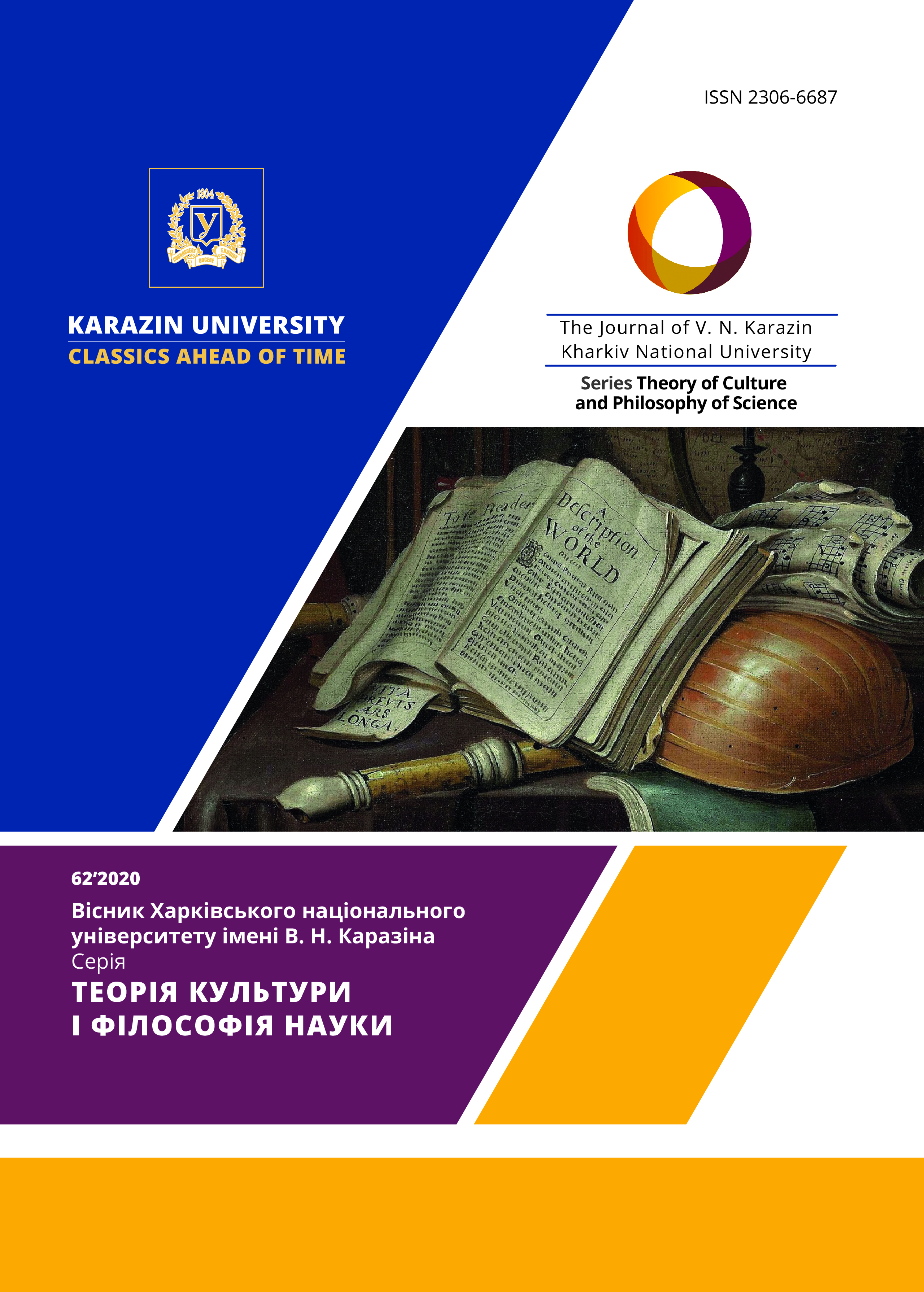ЭСХАТОЛОГИЧЕСКИЕ ИЗМЕРЕНИЯ ХРИСТИАНСКОГО СОЗНАНИЯ
Abstract
The article is dedicated to the problem of revival and restoration of spirituality in the space of everyday and secular consciousness, the "sacred values" by cultivating eschatological topics (on which the religious systems of the civilized world are based) as a universal factor of prosperity of the world and native culture. Eschatological systems as a treasury of history worldview (philosophical, scientific, religious ideology on the global scale) are being undertaken, as well as from the point of view of new realities.
The work is devoted to reconstruction of key eschatological themes, identification of semantic dimensions of their actualization in various forms of manifestation of individual (human) and general (culture, civilization) existence, their disclosure from the point of view of sacred-religious outlook, nuances of understanding in Christian world. "Eschatology", the history of its development in the religious picture of Christian world are pointed out. The key concepts of research are singled out, which are perceived as linguistic "imprints" engraved in words by different historical periods. Within eschatological consciousness, the basic theme of destiny is revealed. In the dimension of theological thought, the destiny of the soul is revealed in the system of considerations about its earthly destiny and the heavenly destiny.
Methodology of the article is complex, it combines the following basic strategies: the history of ideas, analytics, comparative studies, phenomenology, philosophical hermeneutics.
It is established that the concept of "eschatology" (it is a product of ancient times - the ancient era), its word form had not been used by theological thought until the twentieth century. Thus, the semantic content of the term "eschatology" (accumulated by history) has not been fully disclosed, and its evolution needs further rediscovery.
In the article the concept of destiny is substantiated as a basic idea, a matrix of eschatological pictures (religious systems) of the world. The idea of Destiny is presented as an attribute of religious consciousness, eschatological model of the world, Principle of Universe existence and existence of its representatives, as a matrix of eschatological system of the Christians.
Downloads
References
Bible (1991). Books of Scripture of the Old and New Testaments. Translated from Hebrew and Greek into Ukrainian. Kyiv: Ukrainian Bible Society. (In Ukrainian).
Bulgakov, D.A. (1992). Complete Orthodox Theological Encyclopedic Dictionary. (In 3 volumes. Ed. by D. A. Bulgakov). Vol. 1, 2. Moscow: Concern Renaissance. (In Russian).
Kompaniets, L.V. (2016). The concept of «resurrection» and «reincarnation», or through the looking glass of Biblical history. Human and Religious Studies Bulletin. Vol. 3 (7), 16-18. (In Russian).
Bultmann, R.K. (1958). History and eschatology. Edinburgh: The University Press.
Kliefoth, T. (1886). Christliche Eschatologie. Dörffling und Franke.
Manoussakis, J.P. (2013) DeRoo N. Phenomenology and Eschatology: Not Yet in the Now. Ashgate Publishing, Ltd.
Pyvovarov, D.V. (1998). Eschatology: A modern philosophical dictionary. (under the general editorship of V.E. Kemerova. Rev. and add.) London, Frankfurt-na-Mayne, Paryzh, Lyuksemburh, Moskva, Mynsk: Panprynt. (In Russian).
Saudek, D. (2010). Endlich: Eschatologie als interdisziplinäre Fragestellung. Renovatio. Vol.66.
Warren, M. C. (1952). Eshatology and History. International review of missions. Vol. 41.
Walls, J. L. (2007). The Oxford Handbook of Eschatology. Oxford University Press.




